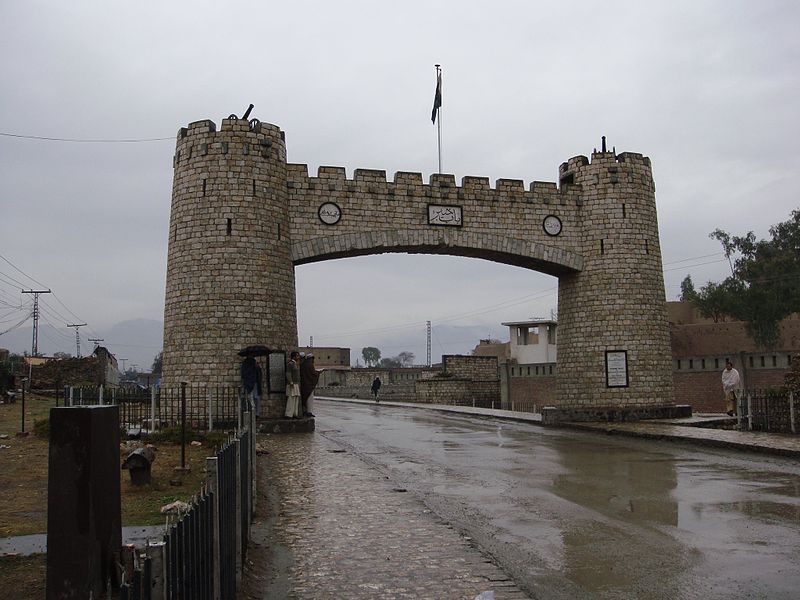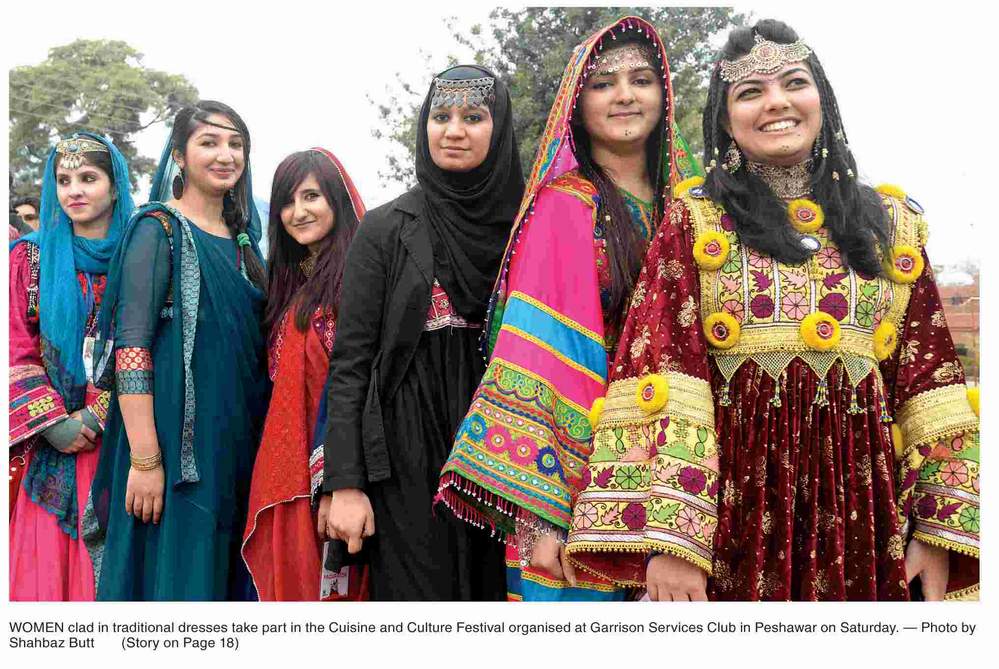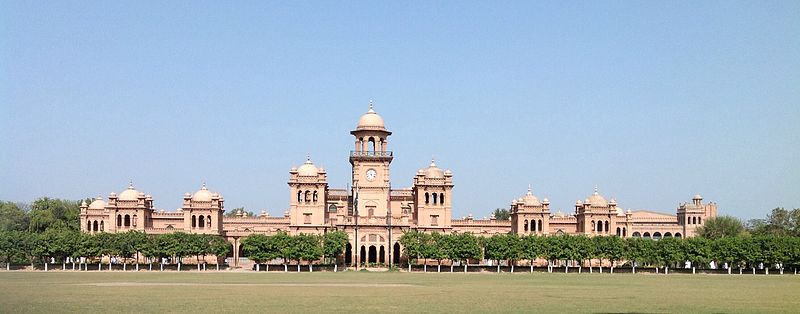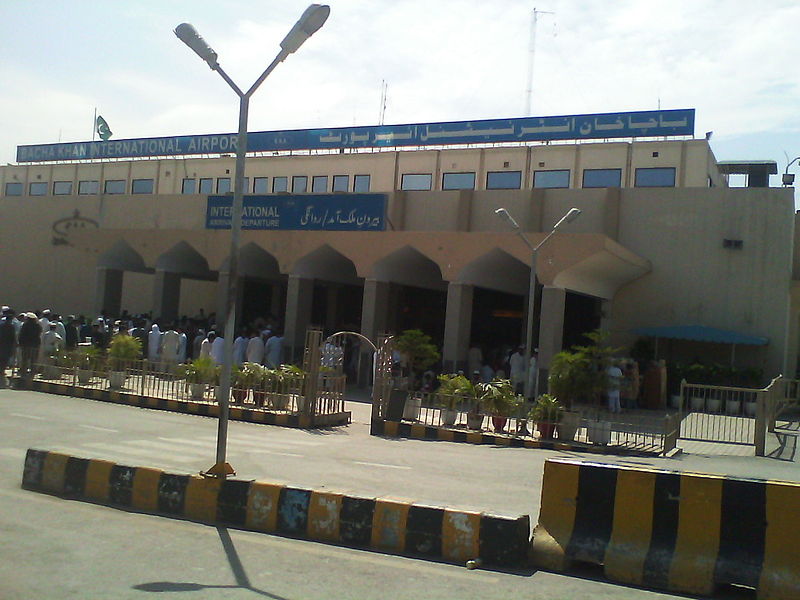Peshawar is the capital of the Khyber Pakhtunkhwa province of Pakistan.
It is the largest city of Khyber Pakhtunkhwa, and according to the 1998 census was the ninth-largest city of
Pakistan.Peshawar is a metropolitan city and the administrative centre and economic hub for the Federally
Administered Tribal Areas of Pakistan.Peshawar is situated in a large valley near the eastern end of the Khyber
Pass, close to the Pak-Afghan border. Peshawar is irrigated by various canals of the Kabul River and by its right
tributary, the Bara River.
history
Peshawar was known in Sanskrit ,literally meaning "city of men".
It also found mention in the Zend Avesta the seventh most beautiful place on earth created by
Ahura Mazda It was known as the "crown jewel" of Bactria and also held sway over Takshashila (modern Taxila).
Being among the most ancient cities of the region between Central and South Asia, Peshawar has for centuries been
a center of trade between Bactria, South Asia and Central Asia. As an ancient center of learning, the 2nd century BC.
Bakhshali Manuscript used in the Bakhshali approximation was found nearby.
Vedic mythology refers to an ancient settlement called Pushkalavati in the area,
after Pushkal, presently known as Charsadda. In recorded history, the earliest
major city established in the general area of Peshawar was called Puruapura (Sanskrit for City of Men),
from which the current name "Peshawar" is likely derived and was western capital of Ghandhara civilization after
Pushkalavati.

Entrance to the Khyber Pass
Excavations have revealed evidence of a prehistoric culture. Relics and human skulls have been found dating back to 5000 BC that show this region was home to Neolithic people who settled on the banks of the Swaan River, who developed small communities in the region at around 3000 BC. One end of the Indus Valley Civilization flourished here between the 23rd and 18th centuries BC. Later the area was an early settlement of the Aryan community. A Buddhist town once existed in the region. Many great armies such as those of Zahiruddin Babur, Genghis Khan, Timur and Ahmad Shah Durrani used the corridor through Islamabad on their way to invade the rest of the Indian Subcontinent. Modern Islamabad is based on the old settlement known as Saidpur. The British took control of the region from the Sikhs in 1849 and built South Asia's largest cantonment in the region.
Culuture
With the Soviet war in Afghanistan in the 1980s and the influx of Afghan refugees into Pakistan,
Peshawar became home for many Afghan musicians and artists.
Following the election of the Muttahida Majlis-e-Amal (MMA) Islamic coalition in 2002,
restrictions on public musical performances were introduced, as well as a ban prohibiting
the playing of recorded music on public transport; however, a thriving underground scene has
developed in Peshawar. In 2008, the secular political party, the Awami National Party (ANP),
swept elections and won power from the Islamic coalition. Since the ANP assumed power in Peshawar,
a greater focus has shifted towards the areas of culture and the arts, but the party has been hindered
by a well-established conservatism among the population and the Taliban militancy. In June 2012,
a Pashto singer, Ghazala Javed, and her father were killed in the city, with the subsequent investigation
revealing that the pair were murdered. Javed's career was very successful and her death occurred
close to three years after the death of another promising Pashto musical artist, Aiyman Udas, who was
also murdered in a fringe area of the city. Such incidents have been associated with Peshawar's
conservative culture and the influence of the Taliban, the latter being the reason for Javed's movement
to Peshawar, as the Taliban had strengthened its presence in the Peshawar Valley in 2007.

Girls of peshawar in traditional dress
Saidpur village is supposedly named after Said Khan, the son of Sultan Sarang Khan. The 500-year-old village was converted into the a place of Hindu worship by a Mughal commander, Raja Man Singh. He constructed a number of small ponds: Rama kunda, Sita kunda, Lakshaman kunda, and Hanuman kunda. The region is home to many Hindu temples that are preserved, showing the history of Hindu civilisation and architecture in the region.. The shrine of Sufi mystic Pir Meher Ali Shah is located at Golra Sharif, which has a rich cultural heritage of the pre-Islamic period. Archaeological remains of the Buddhist era can also still be found in the region. The shrine of Bari Imam was built by Mughal Emperor Aurangzeb. Thousands of devotees from across Pakistan attend the annual Urs of Bari Imam. The event is one of the largest religious gatherings in Islamabad. In 2004, the Urs was attended by more than 1.2 million people. The Lok Virsa Museum in Islamabad preserves a wide variety of expressions of folk and traditional cultural legacy of Pakistan. It is located near the Shakarparian hills and boasts a large display of embroidered costumes, jewellery, musical instruments, woodwork, utensils and folkloristic objects from the region and other parts of Pakistan.
Education
Numerous educational institutes � schools, colleges and universities �
are located in Peshawar. The University of Peshawar (UOP) was established in October 1950
by the first Prime Minister of Pakistan. Edwardes College, founded in 1900 by Herbert Edwardes,
is the oldest college in the province.

Islamia College University
The higher education institutes in the capital are either federally chartered or administered by private organisations and almost all of them are recognised by the Higher Education Commission of Pakistan. High schools and colleges are either affiliated with the Federal Board of Intermediate and Secondary Education or with the UK universities education boards, O/A Levels, or IGCSE. According to Academy of Educational Planning and Management's report, in 2009 there were a total of 913 recognised institutions in Islamabad (31 pre-primary, 2 religious, 367 primary, 162 middle, 250 high, 75 higher secondary and intermediate colleges, and 26 degree colleges). There are seven teacher training institutes in Islamabad with a total enrolment of 604,633 students and 499 faculty.
Sports
Arbab Niaz Stadium is the test cricket ground of Peshawar.
Other stadiums are Army Stadium, Peshawar Club Ground and Qayyum Stadium.
Cricket is the most popular sport in Peshawar and the city is home to the domestic team,
Peshawar Panthers while Peshawar Zalmi represents Peshawar and the province of Khyber Pakhtunkhwa overall
in Pakistan Super League. Hockey and squash are also popular in Peshawar. Shahi Bagh is available for general
public for various out door games.

sport complex
in Pakistan Super League. Hockey and squash are also popular in Peshawar. Shahi Bagh is available for general public for various out door games.